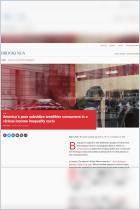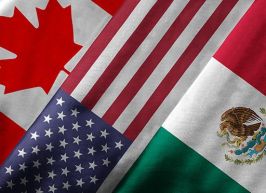Únase a getAbstract para acceder al resumen.

Únase a getAbstract para acceder al resumen.
Lisa Servon
Better Banking
PopTech, 2013
¿De qué se trata?
If check cashing companies prey on the poor, why do low-income clients prefer them to banks?
Recommendation
Brava, Lisa Servon! In her superb presentation, the professor of urban policy explores the shortcomings of banking services for poor communities in the United States. Unlike most academics and policy makers, who have a tendency to postulate from afar about the needs to the poor, Servon climbed down from her ivory tower and got her hands dirty working at a check casher in a poverty-stricken neighborhood. Her gallant efforts were not in vain: Servon deftly found the root of the problem. getAbstract recommends Servon’s persuasive conclusions to policy makers, banking executives and oblivious middle-class Americans who assume that the poor need their systems.
Summary
About the Speaker
Lisa Servon is professor of urban policy at The New School in New York City. She wrote Bootstrap Capital.




















Comment on this summary